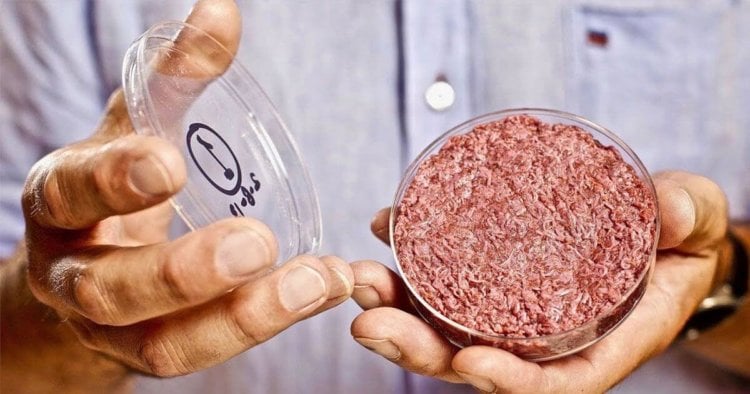Animal is one of the most carbon-intensive industries, accompanied by the emission of greenhouse gases into the atmosphere, stimulating the global temperature change. So we once had to choose between suitable for living planet and a juicy Burger, scientists are trying to establish production of so-called artificial “meat from a test tube”. One of its advantages just is their reduced carbon footprint, i.e. the volume of carbon dioxide, methane and other greenhouse gases entering the atmosphere as a result of the particular activity. But a new study experts from the University of Oxford suggests that a complete failure of production of the meat, and the transition to artificial, lab-grown, capable of inflicting far more harm to the environment.

The work was published in the journal Frontiers in Sustainable Food Systems. Its authors, John Lynch and Raymond Perumbur report that on the basis of the three available assessments conducted a more thorough comparative analysis of the carbon footprint resulting from traditional beef production, and also by growing artificial meat. The researchers note that these estimates are very much different from each other, but in General show that the production of artificial meat, especially beef substitute, will indeed be less carbon intensive than the production of natural.
The researchers used a climate model simulating the different properties of carbon dioxide, methane and nitrous oxide, wherein, for example, the duration of the presence in the atmosphere. It is possible to estimate the difference of potential changes (growth) in global temperature between the two types of meat production in the next thousand years.
“Continuously high intake of artificial meat first gives less global warming. However, over time this gap has been narrowing. In some scenarios, the model showed a smaller increase of temperature in the case of the production of natural meat. The reason is that methane, unlike carbon dioxide, does not accumulate in the atmosphere — methane, unlike carbon dioxide is retained in it only 12 years,” the study says.
Scientists say they also conducted a simulation of the reduction in consumption of natural meat, which showed that although peak emissions from livestock higher, the rates then decline and stabiliziruemost. Carbon dioxide from the production of artificial meat, in turn, is retained in the atmosphere and accumulates.
“Thus, the production of laboratory meat, in terms of climate impacts may be even worse than livestock,” the researchers summarize.
To discuss the news in our Telegram chat.